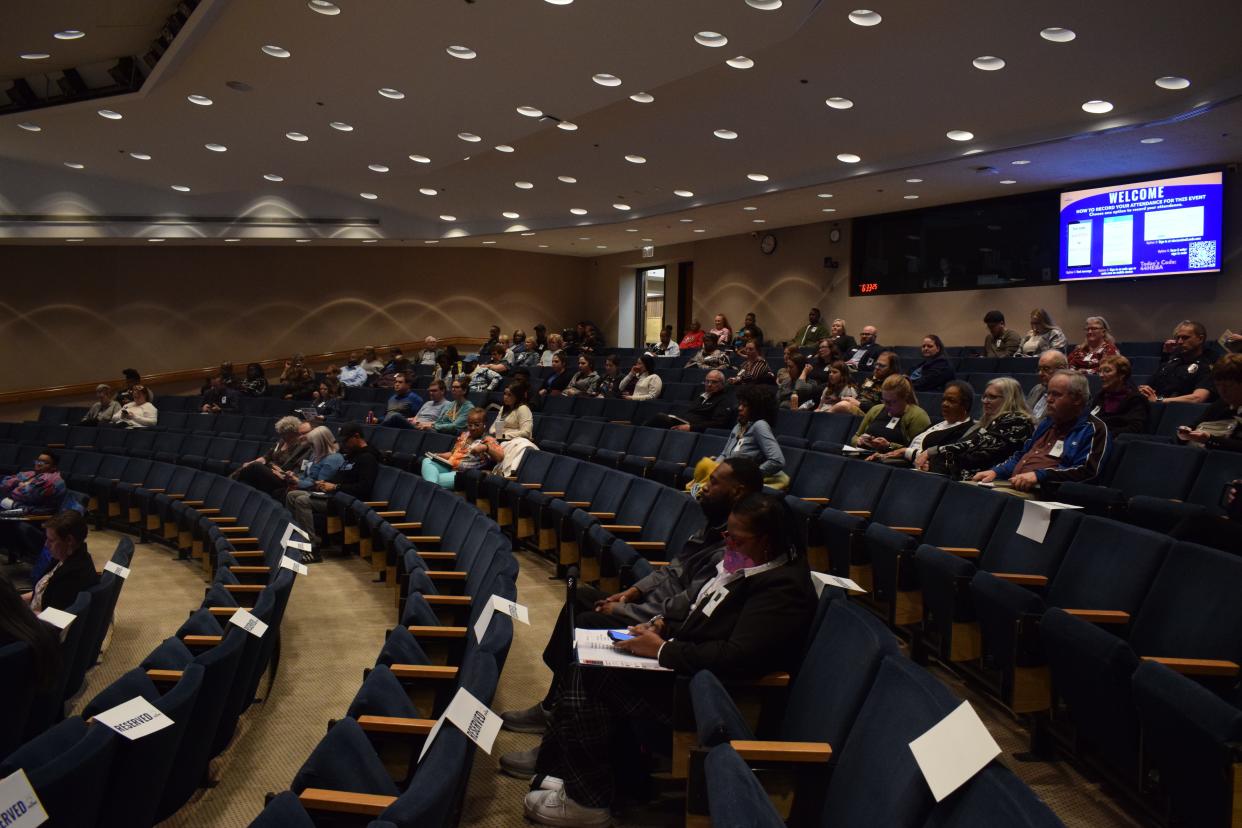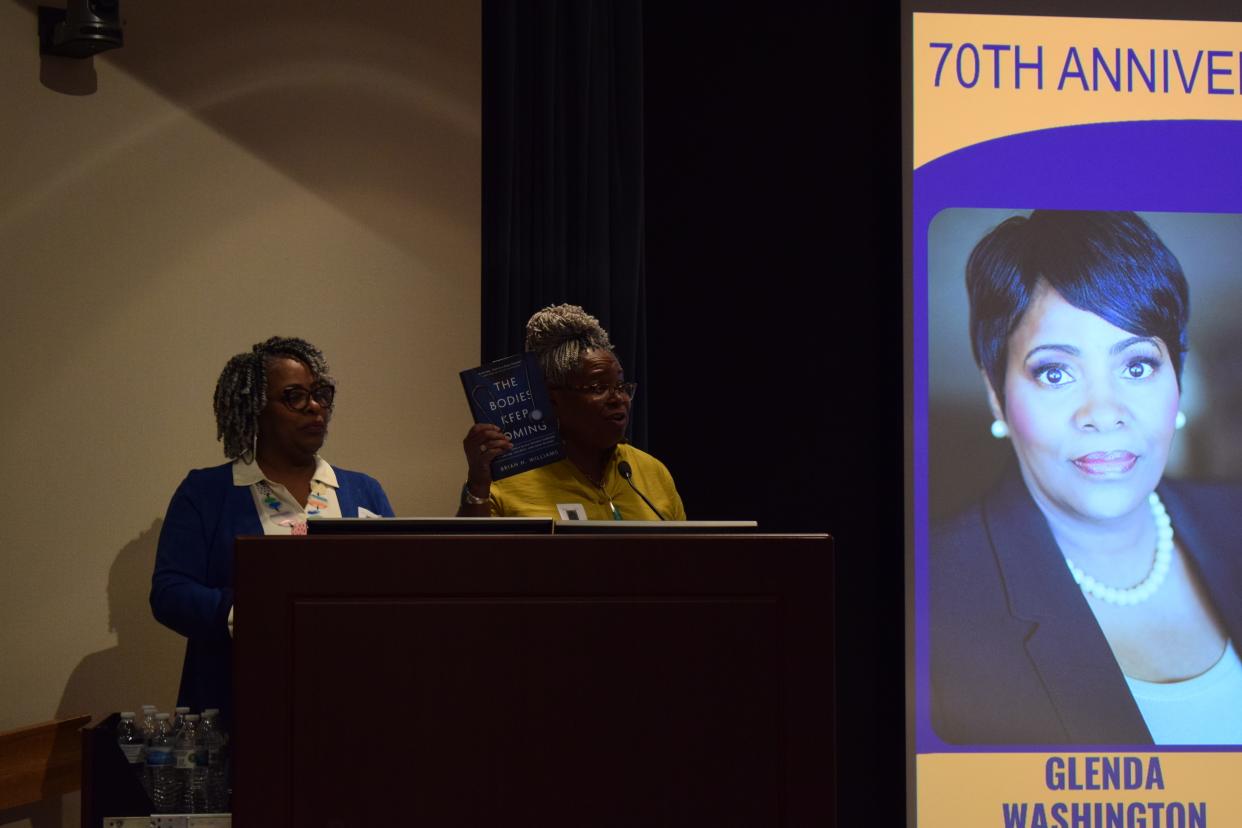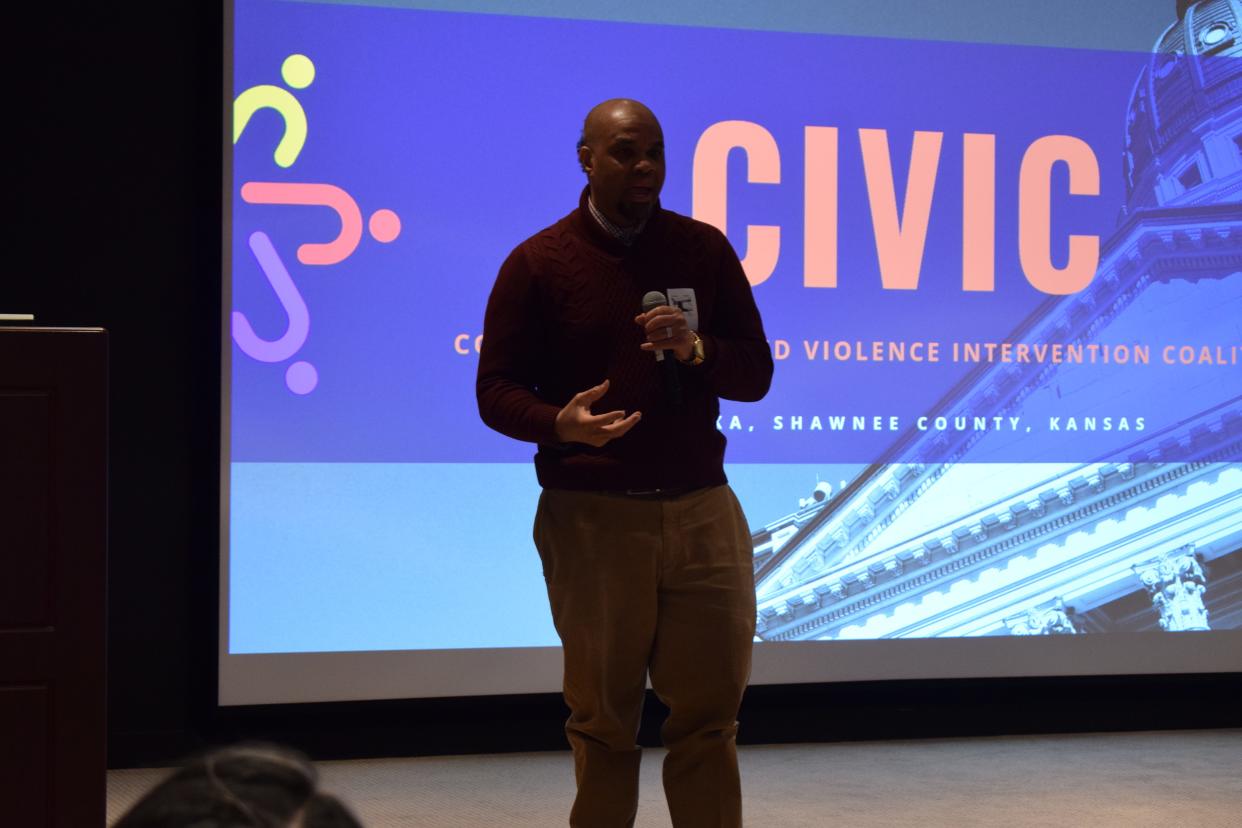'We matter, our community matters': Topekans discuss gun violence in BIPOC areas
The Topeka zip code 66604 in central Topeka has highest rate of gun violence in the city, according to data from the Community Inspired Violence Intervention Coalition.
About 250 people joined in person and virtually to address gun violence and how it disproportionately harms people of color at the 70th Brown Coalition's event "The Health of the BIPOC Community: A Discussion on Gun Violence."
Stormont Vail Health partnered to put on the event, which included four presentations.

Mary Snipes, a mother who lost her son to gun violence in Junction City, told the audience how the importance of conversations about gun violence during "Gun violence: A Survivor's Perspective."
"Our son mattered," Snipes said. "His siblings matter. We matter, our community matters, our story matters. Having this community forum matters, and continuous conversations like this matters."
It's in our own backyard
"This isn't just a national thing," community activist Danielle Twemlow said during "The Impact of Gun Violence in our Community." "We see these disparities here."
As previously reported, Topeka saw its deadliest year in 2023 with 35 homicides, which included 10 child victims.
Social worker and community activist Daniel Martin spoke about his own personal experiences with gun violence in Topeka. At the age of 14, he was shot at close range with a shotgun near S.W. 14th and Western Avenue.
During Twemlow's presentation, she broke down data showing the racial disparities the Community Inspired Violence Intervention Coalition (CIVIC) found in Topeka and Shawnee County. This included people of color having less access to safe and decent living and higher premature mortality rates.

An us vs. them mentality
During "A Surgeon's View on Gun Violence," Stormont Vail trauma surgeon Nason Lui said he consistently has seen white people in the community detach themselves from the issue of gun violence because it doesn't impact them.
Lui said he'd even heard some people go as far as saying, "Let them shoot each other."
Lui said this mentality is dangerous and damaging to the community. During his speech, he cited a quote from James Baldwin — the late writer and civil rights activist — about indifference being what blinds people.
"But the problem is out there, and the problem is not them," Lui said. "The problem is us."
Lui said because of this mentality in Topeka, he's seen resources be doled out for high-income communities, including his own, but has yet to see low-income neighborhoods receive the same care.
"In the days that house invasions used to happen, that happened in my neighborhood," Lui said. "Do you know how long it took to shut down? Less than two to three months because the Shawnee (County) commissioner lives right there and the resources were brought in immediately. So we have this stuff.
"We can use it, but it's just accessing it, which is difficult."
What is being done to address gun violence?
Often, people don't agree on the best strategies to address or prevent gun violence.
There are advocates who speak out against gun violence like "The Bodies Keeps Coming" author and trauma surgeon Brian Williams and Moms Demand Action advocate Snipes, who lost her son to gun violence. Both have worked with legislators to achieve gun regulation and decreasing easy gun access.
Williams had advocated for the Safer Communities Act, which Congress passed in 2022 and implemented new gun control laws.
"The power of policy can make a huge difference on a scale much larger than I ever could do in the hospital," said Williams, whose presentation was titled "Structural Racism, Gun Violence and How We Heal."
The trauma center at Stormont Vail not only physically treats gun violence, but it also has programs in place to deep dive into what gun violence in the community looks like, Lui said
"The most positive transformation has been Stormont Vail organizing a level two trauma service, which has helped us to trace what actually happens in this community," he said. "Things that we can document, that we can show what's going on and things that we won't close our eyes to."
Then there are community programs that address contributing factors to gun violence like CIVIC and Martin's private practice where he helps former prison residents rejoin the community.

Martin said one thing is for certain, the conversations of gun violence and how to resolve it must include those directly involved.
"The answer to the community's problems is not in this room," Martin said. "The answers are where I'm at, out in the streets with him, making decisions about people's lives, and they're not even here. We're telling them what they need, and we're not even asking them nothing.
"Like they don't participate in their own lives. It don't work, and different people need different things."
This article originally appeared on Topeka Capital-Journal: Topekans discuss gun violence in BIPOC areas and search for solutions
